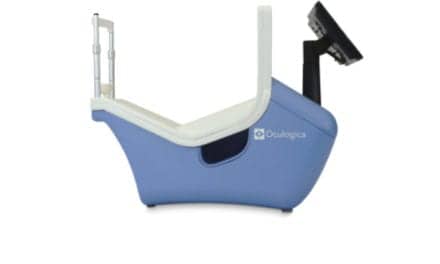A study presented at the American Academy of Neurology (AAN) 66th Annual Meeting shows that the King-Devick test, a visual test for sideline concussion screening, can improve the identification of concussion in sports players who have experienced a head injury. For the study, baseline data for 217 athletes ages 18 to 22 years playing on the University of Florida’s men’s football and women’s lacrosse and soccer were collected. These included scores on the King-Devick vision test, along with the standard tests currently used, such as the Balance Error Scoring System (BESS).
The tests were performed again after head injury, and analyses examined changes in scores from baseline to postinjury. The results of the test reveals that among 30 athletes with first concussion during their athletic season, 79% showed worse time scores in the King-Devick vision test. The Standardized Assessment of Concussion (SAC) test identified 52% of concussions, and the BESS test picked up 70%. The results also show that combining the King-Devick vision test and SAC captured 89% of concussions and using all three tests identified 100%.
Also, symptom severity scores on the Post-Concussion Scale (PCS) worsened from baseline with increases in King-Devick test scores. Baseline scores for the ImPACT testing visual motor speed subscore were also worse for athletes who required longer times to complete the King-Devick test at baseline.
Laura Balcer, MD, author of the study, says, “The visual pathways are commonly affected in concussion. Adding a vision-based test to evaluate athletes on the sidelines may allow us to better detect more athletes with concussion more quickly. This is particularly important since not all athletes reliably report their symptoms of concussion, including any vision problems.”
A second paper presented at the AAN Annual Meeting used King-Devick testing preseason, postseason, and immediately after a suspected concussion in 141 high school hockey players. Additional testing was performed in a subgroup of nonconcussed athletes before and after a game to determine the effect of fatigue and subconcussive hits on King-Devick scores. The results of the study showed that King-Devick testing accurately identified real-time, symptomatic concussion in adolescents.
Priya Dhawan, MD, first author of the study, states, “Athletes should undergo pre- and postseason K-D testing, with additional evaluation real-time to inform the assessment of suspected concussion.”
[Sources: American Academy of Neurology, Medscape]





